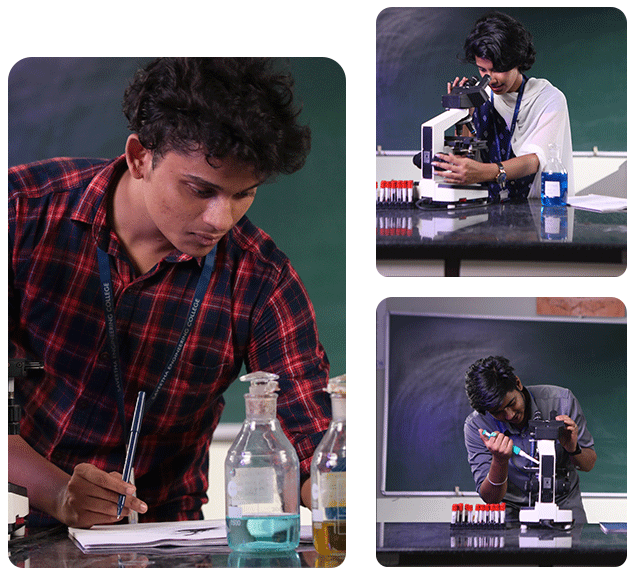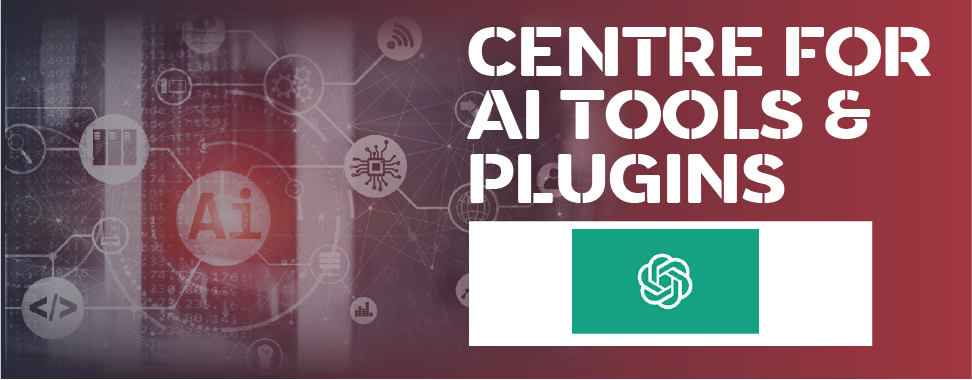About the Department
The Department of Chemical Engineering, established in 2018, has been offering a B.Tech in Chemical Engineering since the 2018–2019 academic year. This forward-thinking field now integrates a focus on sustainable and responsible production processes, emphasizing the harmonization of advanced technology with human-centric approaches. The curriculum includes the study of smart manufacturing, personalized production, and the application of AI and robotics in chemical engineering, while also maintaining a strong commitment to environmental stewardship and ethical considerations in production. A key component of the curriculum is the incorporation of Aspen Plus software, a powerful tool widely used in the chemical engineering industry. Aspen Plus is employed for process simulation, optimization, and design, allowing students to model chemical processes and predict the behavior of complex systems. Its applications span various areas, including energy management, environmental impact assessment, and the optimization of chemical processes for increased efficiency and sustainability. By learning Aspen Plus, students gain valuable skills in process modeling and analysis, equipping them to address real-world engineering challenges with innovative solutions. To adapt to the evolving industrial landscape, the department actively incorporates workshops, training programs, and conferences that cover emerging areas such as digital transformation, circular economy, and human-robot collaboration. Industrial visits, in-plant training, and internships are carefully curated to provide hands-on experience with cutting-edge technologies, sustainable practices, and the practical application of tools like Aspen Plus in industry settings. The department also places a heightened emphasis on developing soft skills and a strong ethical foundation in students through personality development programs, particularly in the third and final year, preparing them not just for placements, but also to be conscientious leaders in the field. Guidance for competitive exams like GATE and GRE includes aspects of innovation and sustainable practices. Dedicated to fostering a culture of continuous learning and research, the department encourages both students and faculty to engage in interdisciplinary collaborations, focusing on developing innovative, sustainable engineering practices and teaching methodologies that align with the ethos of Industry 5.0.
Key Features

Placement Data

Centre of Excellence




Eminent Alumni
News and Events
Step Into Success with Ramco Drive
🚀 Saveetha Engineering College (Autonomous) proudly welcomes “Ramco – Campus Hiring Drive” for the EIE & Chemical 2025 Batch.🌟 Ramco
🚀 SEC’s Placement Drive – Your Gateway to Success
✨ Ready to launch your career journey? Saveetha Engineering College (Autonomous) conducts “Emerson – Campus Hiring Drive” for the ’25
✨ Ready to Shine? Join ‘Motherson’ Placement Drive!
🚀 Gear up for your future! SEC (Autonomous) conducts the ‘Motherson Campus Hiring Drive for the ‘25 batch Mechanical, Chemical,
VISION
- To impart quality technical education for creating competent Chemical Engineers capable of accepting new challenges to serve as a reputable resource for the society concerned with a sustainable environment.
MISSION
- To imbibe quality technical education with innovative analytical skills and foster a critical thinking culture.
- To equip graduates with leadership and entrepreneurial skills and enrich them to solve complex problems for chemical and its allied industries
- To create a conducive research environment with modern facilities in collaboration with organizations and industries to pursue excellence in research and academics.
PROGRAMME EDUCATIONAL OBJECTIVES (PEOs)
Chemical Engineering Graduates will be able to,
- Have a high level of technical competency combined with research and problem-solving skills to generate innovative solutions in Chemical Engineering and related areas.
- Communicate effectively with various stakeholders and practice their profession with high regard to societal needs, diversity, constraints in the professional workplace, and ethical responsibilities.
- Continuously update themselves in the areas and technologies relevant to their career, participate in personal development, and increase their understanding of current and essential societal matters in national and international contexts.
- Solve complex technical problems and /or design systems useful to society by applying the fundamental scientific principles underpinning the chemical engineering profession.
- Undertake lifelong learning and adapt to the changing environment.
Knowledge and Attitude Profile (WK)
- WK1: A systematic, theory-based understanding of the natural sciences applicable to the discipline and awareness of relevant social sciences.
- WK2: Conceptually-based mathematics, numerical analysis, data analysis, statistics and formal aspects of computer and information science to support detailed analysis and modelling applicable to the discipline.
- WK3: A systematic, theory-based formulation of engineering fundamentals required in the engineering discipline.
- WK4: Engineering specialist knowledge that provides theoretical frameworks and bodies of knowledge for the accepted practice areas in the engineering discipline; much is at the forefront of the discipline.
- WK5: Knowledge, including efficient resource use, environmental impacts, whole-life cost,reuse of resources, net zero carbon, and similar concepts, that supports engineering design and operations in a practice area.
- WK6: Knowledge of engineering practice (technology) in the practice areas in the engineering discipline.
- WK7: Knowledge of the role of engineering in society and identified issues in engineering practice in the discipline, such as the professional responsibility of an engineer to public safety and sustainable development.
- WK8: Engagement with selected knowledge in the current research literature of the discipline, awareness of the power of critical thinking and creative approaches to evaluate emerging issues.
- WK9: Ethics, inclusive behavior and conduct. Knowledge of professional ethics, responsibilities, and norms of engineering practice. Awareness of the need for diversity by reason of ethnicity, gender, age, physical ability etc. with mutual understanding and respect, and of inclusive attitudes.
PROGRAMME OUTCOMES (POs)
Engineering Graduates will be able to,
- PO1: Engineering Knowledge: Apply knowledge of mathematics, natural science, computing, engineering fundamentals and an engineering specialization as specified in WK1 to WK4 respectively to develop to the solution of complex engineering problems.
- PO2: Problem Analysis: Identify, formulate, review research literature and analyze complex engineering problems reaching substantiated conclusions with consideration for sustainable development. (WK1 to WK4)
- PO3: Design/Development of Solutions: Design creative solutions for complex engineering problems and design/develop systems/components/processes to meet identified needs with consideration for the public health and safety, whole-life cost, net zero carbon, culture, society and environment as required. (WK5)
- PO4: Conduct Investigations of Complex Problems: Conduct investigations of complex engineering problems using research-based knowledge including design of experiments, modelling, analysis & interpretation of data to provide valid conclusions. (WK8).
- PO5: Engineering Tool Usage: Create, select and apply appropriate techniques, resources and modern engineering & IT tools, including prediction and modelling recognizing their limitations to solve complex engineering problems. (WK2 and WK6)
- PO6: The Engineer and The World: Analyze and evaluate societal and environmental aspects while solving complex engineering problems for its impact on sustainability with reference to economy, health, safety, legal framework, culture and environment. (WK1, WK5, and WK7).
- PO7: Ethics: Apply ethical principles and commit to professional ethics, human values, diversity and inclusion; adhere to national & international laws. (WK9)
- PO8: Individual and Collaborative Team work: Function effectively as an individual, and as a member or leader in diverse/multi-disciplinary teams.
- PO9: Communication: Communicate effectively and inclusively within the engineering community and society at large, such as being able to comprehend and write effective reports and design documentation, make effective presentations considering cultural, language, and learning differences
- PO10: Project Management and Finance: Apply knowledge and understanding of engineering management principles and economic decision-making and apply these to one’s own work, as a member and leader in a team, and to manage projects and in multidisciplinary environments.
- PO11: Life-Long Learning: Recognize the need for, and have the preparation and ability for i) independent and life-long learning ii) adaptability to new and emerging technologies and iii) critical thinking in the broadest context of technological change. (WK8)
PROGRAMME SPECIFIC OUTCOMES (PSOs)
Chemical Engineering Learners will be able to
- Analyze process calculations, materials & energy balances, thermodynamics, unit operations & process control, and evaluate chemical reaction engineering and transport processes.
- Formulate and apply Chemical Engineering Simulation tools to analyze process economics, industrial safety and environmental ethics, and sustainable development to work in traditional and emerging Chemical Engineering areas.
- Design equipment for chemical processing, and apply and analyze critical thinking for innovative chemical processes.



